-
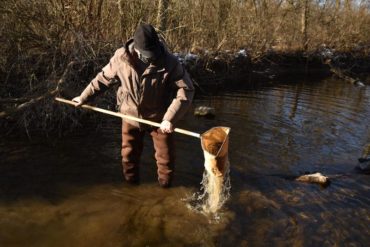 Charles Stewart Mott Foundation PartnershipClimate ChangeDrinking WaterFish, Birds and AnimalsInfrastructureLatest NewsMichiganNewsResearch, Data and Technology
Charles Stewart Mott Foundation PartnershipClimate ChangeDrinking WaterFish, Birds and AnimalsInfrastructureLatest NewsMichiganNewsResearch, Data and TechnologyIntense storms from climate change harming Michigan streams and rivers
-Severe storms can lead to intensive flooding, soil erosion and disruption to fish populations. Timing is everything in nature.
00 -
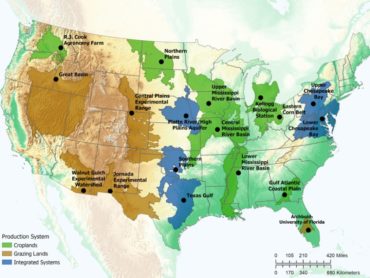 AgricultureCollaborationDrinking WaterLatest NewsNewsResearch, Data and TechnologyScience, Technology, ResearchWater Quality and Restoration Efforts
AgricultureCollaborationDrinking WaterLatest NewsNewsResearch, Data and TechnologyScience, Technology, ResearchWater Quality and Restoration EffortsBig Benefits from Experimental Watersheds
-In the ’30s, the USDA established a series of experimental watersheds to better understand how erosion, runoff, and water quality vary in response to different agricultural practices, including sites in the Great Lakes region.
-
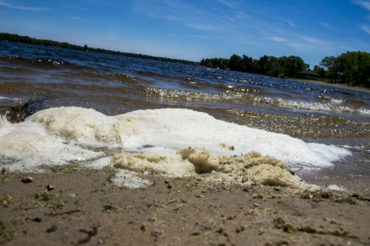 Charles Stewart Mott Foundation PartnershipDrinking WaterFish, Birds and AnimalsForever Chemicals FeaturedLatest NewsMichiganNewsPFASRecreational Hunting and FishingResearch, Data and Technology
Charles Stewart Mott Foundation PartnershipDrinking WaterFish, Birds and AnimalsForever Chemicals FeaturedLatest NewsMichiganNewsPFASRecreational Hunting and FishingResearch, Data and TechnologyPFAS is in fish and wildlife. Researchers prowl Michigan for clues.
-Years into Michigan’s PFAS contamination crisis, little is known about how the chemicals affect the fish and wildlife that live in tainted environments. Michigan has become a laboratory for answers.
-
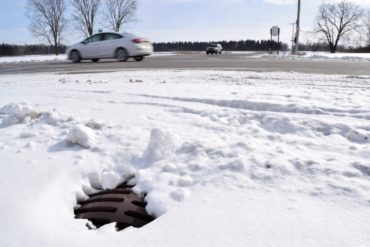 Drinking WaterGroundwater ContaminationIllinoisKathy JohnsonLatest NewsMichiganNewsOntarioResearch, Data and TechnologyScience, Technology, ResearchWater Quality and Restoration Efforts
Drinking WaterGroundwater ContaminationIllinoisKathy JohnsonLatest NewsMichiganNewsOntarioResearch, Data and TechnologyScience, Technology, ResearchWater Quality and Restoration EffortsRoad Salt: Researchers look at vegetables and juices for alternatives to salt
-Great Lakes residents depend on road salt to reach their destinations safely in the winter, but that safety places a heavy burden on freshwater ecosystems.
-
 Charles Stewart Mott Foundation PartnershipClimate ChangeDrinking WaterInfrastructureLatest NewsMichiganNewsResearch, Data and TechnologyScience, Technology, Research
Charles Stewart Mott Foundation PartnershipClimate ChangeDrinking WaterInfrastructureLatest NewsMichiganNewsResearch, Data and TechnologyScience, Technology, ResearchWater could make the Great Lakes a climate refuge. Are we prepared?
-Michigan and the Great Lakes region — with an abundance of fresh water, warming winters and less fire-prone forests — stand to attract millions of new residents in the coming years looking to escape flooded coastal areas and the parched land of the West.
-
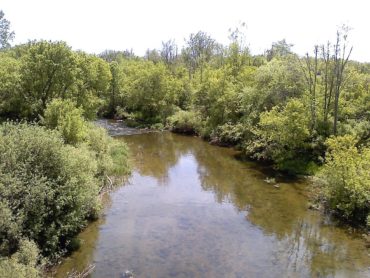
Program to study Clinton River to improve water quality
-The monitoring is part of the Great Lakes Water Authority’s Regional River Water Quality Monitoring Program.
-
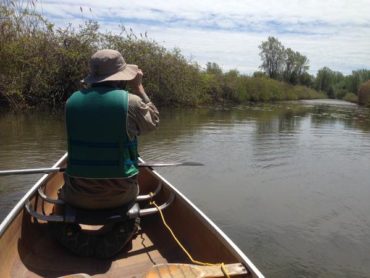 CollaborationFish, Birds and AnimalsHabitat RestorationLatest NewsNewsOntarioResearch, Data and TechnologyScience, Technology, Research
CollaborationFish, Birds and AnimalsHabitat RestorationLatest NewsNewsOntarioResearch, Data and TechnologyScience, Technology, ResearchU.S., Canadian researchers conduct binational birds conservation research
-A lot of marsh birds are experiencing steep declines in their populations, especially with water levels rising and affecting their habitats, coastal wetlands.
-
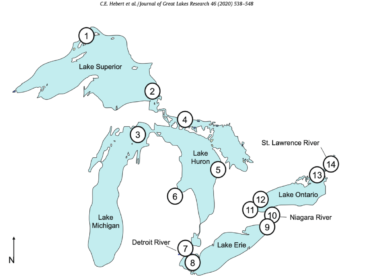 CollaborationFish, Birds and AnimalsLatest NewsNewsResearch, Data and TechnologyScience, Technology, Research
CollaborationFish, Birds and AnimalsLatest NewsNewsResearch, Data and TechnologyScience, Technology, ResearchHerring gull eggs help monitor Great Lakes ecosystems
-For about 50 years, herring gulls have been used to get a better idea of how the Great Lakes are changing through time.
-
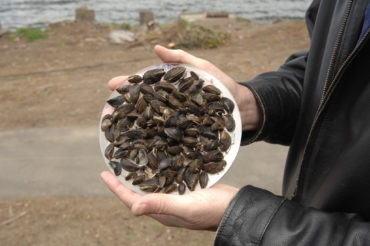 Invasive SpeciesLake ErieLake HuronLake MichiganLake OntarioLatest NewsNewsResearch, Data and TechnologyScience, Technology, Research
Invasive SpeciesLake ErieLake HuronLake MichiganLake OntarioLatest NewsNewsResearch, Data and TechnologyScience, Technology, Research30 Years Later: Mussel invasion legacy reaches far beyond Great Lakes
-“They will be big players for probably hundreds of years,” said one researcher.
-
 APClimate ChangeLatest NewsNewsPolitics, Policy, Environmental JusticeResearch, Data and TechnologyScience, Technology, ResearchU.S. and Canadian Federal Governments
APClimate ChangeLatest NewsNewsPolitics, Policy, Environmental JusticeResearch, Data and TechnologyScience, Technology, ResearchU.S. and Canadian Federal GovernmentsBiden environmental challenge: Filling vacant scientist jobs
-Employment data shows more than 670 science jobs lost at the EPA, 150 at the U.S. Geological Survey and 231 at the Fish and Wildlife Service.

